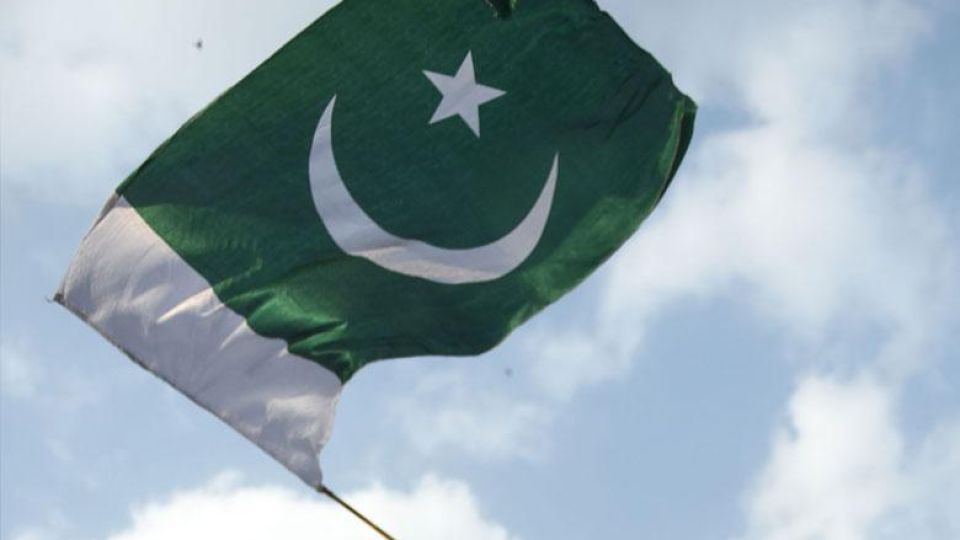April 8, 2022
ISLAMABAD – The Election Commission of Pakistan (ECP) said on Thursday that it would require another four months to complete the process of delimitation of constituencies, adding that elections could be held “honestly, justly and fairly” in October.
The electoral watchdog’s statement was in reply to a letter by President Dr Arif Alvi, who had asked the ECP to propose dates for holding general elections in the country.
The president’s letter to the ECP stated that under Article 48(5)(A) and Article 224(2) of the Constitution, the president had to appoint a date, not later than 90 days from the date of dissolution of the National Assembly, for holding general elections.
President Alvi had sought the dates for holding elections after he dissolved the National Assembly (NA) on Prime Minister Imran Khan’s advice following the dismissal of a no-trust motion against the premier by NA Deputy Speaker Qasim Suri.
The Supreme Court is expected to issue a ruling on the legality of these measures tonight as the possibility of early elections looms.
In its reply, a copy of which is available with Dawn.com, the ECP said it was an ” independent [and] constitutional entity, entrusted with the sacred duty of organising and conducting elections in terms of Article 218(3) of the Constitution and to make such arrangements and are necessary to ensure that the election is conducted honestly, justly, fairly and in accordance with law, and that corrupt practices are guarded against”.
It also requested the president to schedule meetings with the ECP for further deliberations on holding elections.
Delays in delimitation
The ECP also explained in detail the reasons behind delays in delimitation — an issue that has garnered attention after a Dawn report quoted an ECP official as saying that general elections were not possible within three months due to legal and operational constraints.
He had said fresh delimitation of constituencies, particularly in Khyber Pakhtunkhwa where the number of seats had been increased under the 26th Amendment, and bringing district and constituency-wise electoral rolls in conformity were the major challenges.
However, the election commission had clarified at the time that it had not issued any statement about holding elections, but did not say whether it was ready to conduct the polls in three months.
The ECP later held the Pakistan Tehreek-i-Insaf government responsible for the delay in delimitation.
In its reply to the president, the electoral watchdog highlighted that delimitation of constituencies was one of the “foundational steps” toward elections and was conducted on the basis of the final publication of census results.
The provisional results of the 6th national census, conducted in 2017, were published on January 3, 2018, the ECP said, adding that the delimitation of the NA and provincial assemblies was carried out on the basis of these results “as a one-time dispensation granted by the amendment made under Article 51(5) of the Constitution for general elections 2018”.
The final publication of official results of the census was a constitutional requirement for delimitation for the next elections, the ECP underlined.
“Accordingly, the commission made concerted efforts and took up the matter of final publication of official census results.”
The ECP said letters were written to PM Imran and other relevant departments in this regard. It further mentioned that as the number of seats in the NA had reduced after the merger of esrtwhile Federally Administered Tribal Areas with KP, it was mandatory that fresh delimitation be carried out in KP.
“But it was not possible due to the non-publication of official census results by the Pakistan Bureau of Statistics,” the ECP said.
The electoral watchdog further said it had started the process of delimitation and approved timelines for the same after, “finally, the Council of Common Interests published the 6th national census results”.
But the government decided to hold a fresh digital census and “the commission was constrained to halt the process of delimitation for which the schedule had already been approved,” the ECP said.
It added that subsequently, letters was written to the Ministry of Parliamentary Affairs in September 2021 and January this year for finalisation and publication of fresh digital census results by the end of 2022 so that delimitation could be be completed “well within time as the digital census was planned to be completed by March 2023”.
But the ECP had not received any reply from the Ministry of Parliamentary Affairs on the matter and consequently, delimitation was delayed, the commission said.
The ECP said it was not the sole authority to make with regards to the conduct of elections and remained dependent, under the law, upon federal and provincial government for “required feedback”.
“In case of any delay on the part of any government to perform its duties and to assist the commission, the delay in conduct of delimitation cannot be attributed to the commission by any stretch of imagination,” the electoral watchdog maintained.


